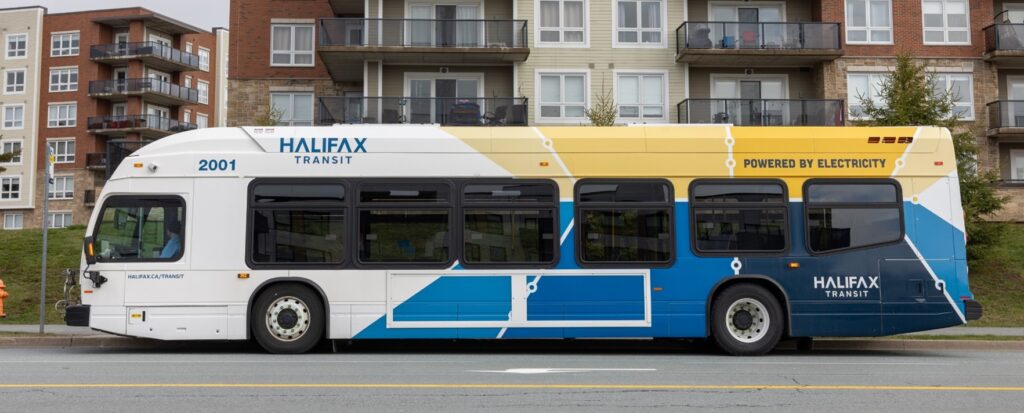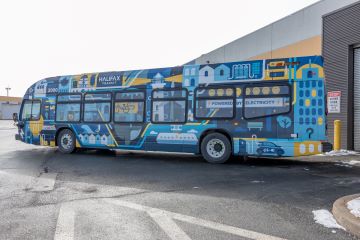May 21st, 2025 | Alex Harris | Seaside FM News

Yesterday, sixty electric buses were launched at the opening of the newly renovated Ragged Lake facility. The facility now has 67 charging stations and solar panels to handle the new battery powered buses.
“It’s incredibly exciting. We’ve been working towards this for a long time and to finally be able to cut the ribbon on this new facility, I think it’s a big milestone for Halifax Transit,” Anthony Edmonds, project manager of fleet electrification for Halifax Transit, told reporters.
“I think it’s a sign of more things to come and the start of a really bright, green future.”
Some electric vehicles struggle in winter. However, Edmonds said that Halifax’s models are exuded with heaters that allow them to burn a small amount of fuel on very cold days to increase the range of the buses between charges.
“Of course, part of the extensive testing that we’ve done has been to see what the performance is like in the winter and to make sure that they meet our needs, even on the harshest days when there is a foot of snow on the ground, and when it’s –20 and blowing. So we should be all right,” Edmonds said.
The project was first announced in 2021. In 2023 the first bus arrived for road testing. The remaining buses have arrived over the past year and three have been in service since December.
The buses are also equipped with a regenerative braking system, similar to the one found in some consumer hybrid and electric vehicles. When the brake pedal is pushed, this system captures kinetic energy that is reused to charge the battery powering the motor.
The new buses have the same capacity as the vehicles in the diesel fleet, so passengers might not notice when they get on an electric bus, says Edmonds. He added that the electric buses are much quieter and won’t leave a cloud of diesel fumes when they pull away from a stop.
According to the municipality’s website, there will be “unobtrusive warning sounds” when the bus is going slowly to help those with vision loss know the bus is coming.
This is the first phase of the city’s electrification plan.

The project is part of HalifAct, the municipality’s climate action plan. It will help hit federal, provincial and municipal climate targets.
Halifax Mayor Andy Fillmore said he was “very proud” that the municipality is the first in Atlantic Canada to see a large number of electric buses enter service.
The municipality expects the sixty electric buses to save around 2800 tons of carbon emissions a year.
The total cost of the project is $112 million. The federal government is contributing $45 million, $37 million is coming from the province, and Halifax is paying $30 million.
HRM is also looking into fuel alternatives like natural gas or hydrogen.
A report coming to Halifax’s audit and finance committee Wednesday shows that Halifax plans to convert four diesel buses to a dual-fuel system using hydrogen and diesel this September for a pilot project aimed to finish in December 2026.
The provincial government is providing $367,500 from its Clean Fuels Fund for the hydrogen pilot and HRM will be paying about $122,500.
Phase two of the project will include an update to the transit centre in Burnside that will allow the municipality to operate the existing diesel fleet and new electric buses. The municipality says that they are also planning for potential alternatives like hydrogen at this facility. This part of the project is currently in the design stage. The new transit centre in Dartmouth is expected to be completed by 2028.
The city says they plan to eventually have around 200 zero-emissions buses in the fleet.

